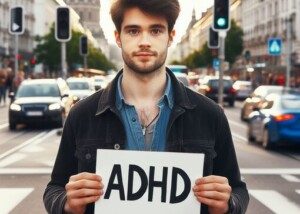
Conditions that mimic ADHD and lead to misdiagnosis in kids.
Has your child been diagnosed with ADHD, because if so, he or she may have been misdiagnosed.
Numerous conditions mimic the condition that is known as ADHD.
What percentage of kids, who’ve been given the ADHD label, have been misdiagnosed?
“I would not be able to give you any percentages,” says Claudia B. Rutherford, PhD, a Massachusetts-based licensed psychologist who specializes in the psychological and neuropsychological testing of children and adults.
“That is a matter of controversy and debate. I would say that many of the kids I see come in with that diagnosis and it turns out to be incorrect, and I know that many clinicians feel it is over-diagnosed.”
When a child is misdiagnosed with ADHD.
“Here are some conditions that can mimic or be mistaken for ADHD, at least in my experience,” says Dr. Rutherford.
Sleep disorders such as sleep apnea. It’s been estimated that about 25 to 30 percent of kids who are diagnosed with ADHD actually have untreated obstructive sleep apnea, says Steven Y. Park, MD, otolaryngologist and author of Sleep, Interrupted: A Physician Reveals The #1 Reason Why So Many Of Us Are Sick And Tired.
If your child has been diagnosed with ADHD, have him or her undergo testing for sleep apnea — even if they’re thin, even if they don’t snore.
Obstructive sleep apnea, when untreated, can produce the classic ADHD symptoms of poor concentration and focus, restlessness, distractibility and moodiness, due to interference of oxygen to the brain during sleep.
Hearing impairment. What seems like inattentiveness can be simply not hearing what’s being spoken.
Have your child’s ears checked, especially if he’s around loud noise for extended periods: plays a lot with screaming kids; wears a loud headset; is frequently around a blaring TV or loud machinery, and also if he has a history of chronic ear infections or excessive fluid buildup in the ears.
Posttraumatic stress disorder. Has your child suffered emotional trauma recently or even not so recently? The lingering effects can mimic ADHD.
Generalized anxiety disorder. Anxiety can make people, including children, engage in behaviors that fit the profile of ADHD.
- Could your child be very unsettled about things going on in her life or just have an anxious disposition?
- Divorce?
- New school?
- Problems with a teacher or older siblings?
- Your own relationship with her?
Just like adults can suffer ongoing anxiety due to strained marital relations or a hostile environment at the job, a child can suffer ongoing anxiety from a stressful school environment, or receiving too much criticism from a parent, for example.
See if there’s a deeper root cause to your child’s ADHD symptoms before blindly accepting the diagnosis of ADHD.
Depression. Depression can affect attention in children, but be careful here, because feeling down in the dumps from time to time, especially in response to trying circumstances, is part of the human experience.
Depression can be the result of underlying physical illnesses such as underactive thyroid.
Bipolar disorder. Previously referred to as manic-depression, kids can experience this, and the “manic” phase has a strong hyperactivity component, while depressive episodes can impair attention.
Learning disabilities. This is a grab-bag term that, in my layman’s opinion, should be changed, because throngs of people still think that “learning disability” is the same as low I.Q., being a “slow learner” or slow-witted, and even mental retardation.

In actuality, a “learning disability” is when someone has difficulty learning, but not due to low I.Q. or below-normal intelligence; but rather, due to how the brain processes information.
These deficits can affect reading, speaking, listening, math and reasoning, which can mimic ADHD symptoms.
Auditory processing deficits. “Kids with central auditory processing disorders have trouble performing well in the classroom, doing better one-on-one,” says Dr. Rutherford.
“They can display symptoms that can easily mimic the inattentive type of ADHD, such as having trouble following directions in a series, showing comprehension problems in conversations, or poorly discriminating between similar sounding words.”
Speech-language delays. “I see numerous kids who come in with a question of ADHD and turn out to have undiagnosed receptive speech-language delays,” says Dr. Rutherford.
“These are kids who may have had chronic ear infections in childhood or were slow in mastering language acquisition.
“They are behind in their ability to understand spoken language, but if this is not diagnosed, it is easy to assume the child is simply not paying attention.”
Traumatic brain injury. Also known as TBI, ask yourself if your child, who’s been diagnosed with ADHD, suffered a possible head trauma recently, even if there was no visible wound or immediate symptoms like headache.
The TBI could have been endured during a sporting event or what seemed like a minor car collision — months ago, even.
Remember, ADHD is a group of symptoms, and there is no definitive diagnostic tool that confirms ADHD as an atypical neurotype or way of thinking.
All of those other conditions need to be ruled out.
So if you’ve been told, “Your child has ADHD,” this really means that he has been identified as having a minimal number of symptoms that fit the criteria for attention deficit hyperactivity disorder.
Autism Misdiagnosed As ADHD
It’s also very possible that a child who’s been given an ADHD diagnosis actually has autism spectrum disorder.
There is a definite symptom overlap between these two conditions.
If you’re planning on having your child assessed for ADHD, make sure it’s by a psychologist or neurpsychologist who specializes in both ADHD and ASD evaluations.
Some kids are also diagnosed with both these conditions.
- Kids who give eye contact can still be autistic
- Kids who have friends or talk a lot can still be autistic.
Drugs for ADHD
Don’t jump to the conclusion that drugs are the answer before finding out if your child has been misdiagnosed with ADHD.
Also consider the possibility that ineffective parenting can produce some suspicious symptoms, such as a habit of loudly interrupting or apparent inability to sit still.










































